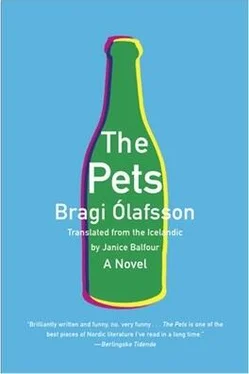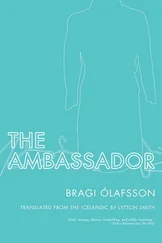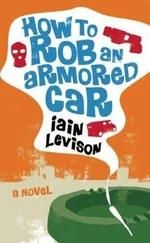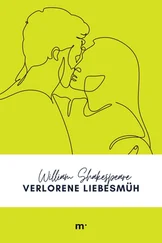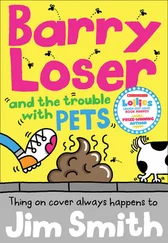Bragi Ólafsson - Pets
Здесь есть возможность читать онлайн «Bragi Ólafsson - Pets» весь текст электронной книги совершенно бесплатно (целиком полную версию без сокращений). В некоторых случаях можно слушать аудио, скачать через торрент в формате fb2 и присутствует краткое содержание. Год выпуска: 2008, Издательство: Open Letter, Жанр: Современная проза, на английском языке. Описание произведения, (предисловие) а так же отзывы посетителей доступны на портале библиотеки ЛибКат.
- Название:Pets
- Автор:
- Издательство:Open Letter
- Жанр:
- Год:2008
- ISBN:нет данных
- Рейтинг книги:5 / 5. Голосов: 1
-
Избранное:Добавить в избранное
- Отзывы:
-
Ваша оценка:
- 100
- 1
- 2
- 3
- 4
- 5
Pets: краткое содержание, описание и аннотация
Предлагаем к чтению аннотацию, описание, краткое содержание или предисловие (зависит от того, что написал сам автор книги «Pets»). Если вы не нашли необходимую информацию о книге — напишите в комментариях, мы постараемся отыскать её.
Pets — читать онлайн бесплатно полную книгу (весь текст) целиком
Ниже представлен текст книги, разбитый по страницам. Система сохранения места последней прочитанной страницы, позволяет с удобством читать онлайн бесплатно книгу «Pets», без необходимости каждый раз заново искать на чём Вы остановились. Поставьте закладку, и сможете в любой момент перейти на страницу, на которой закончили чтение.
Интервал:
Закладка:
The damn fool. I can’t tell if he is mentioning Vigdis just for malicious pleasure, but I’m quite sure he thinks it is strange and probably thrilling that I seem to be involved with two women.
“Alright, I’ll just have to tell him you called. You’re coming over then? What? When you have put her to bed? Alright, fine. He will surely be back by then, Emil is not the sort of person to just go off. Alright, OK you do that.”
Then he says “bye, bye” in an exaggerated feminine manner and I imagine — at least I sincerely hope — that Greta has put down the phone. Not because she might think that the person who answered the phone is gay — I wouldn’t mind that kind of misunderstanding — but because his greeting sounded more like an insult. Only Havard could think of talking to a total stranger like that.
As much as I look forward to Greta’s visit, the last thing I want is for her to see my place for the first time in this impossible situation. It was clear that she intended to come over once her daughter has fallen asleep — she would hardly be putting her mother to bed — and that could mean that she will be here within an hour.
“Here, you have to have another drink,” Havard shouts from the kitchen, where he must have put down the phone.
“Trinken und trinken?” Armann replies, and it is even more obvious now than it was a short while ago that he appreciates my indirect hospitality. Besides, the alcohol has started to affect his speech.
“You are drinking cognac, aren’t you?” Havard says from the kitchen, where he is still pottering about.
“There’s still some left,” Armann says with a laugh and adds in a rather loud voice: “Here, I must tell you something the bartender told me at my hotel in London.”
“Yes, you and Emil were in London together, weren’t you?”
“Well, we flew home together. But the bartender in the Cumberland Hotel where I stayed told me an interesting story. He told me why he became. . well, almost exactly why he decided to become a drinker.”
“Almost exactly?” Havard has come back from the kitchen. Just as Armann is about to carry on with his story, the phone rings again. Havard sighs and repeats that this phone just won’t leave them in peace.
“It could be Emil,” Armann says.
But I am not the person who answers when Havard introduces himself.
“Good evening,” he says formally. “This is Howard Knutsson speaking. Emil? No, Emil just isn’t available. And who are you, if I may ask? Who am I ? Well, I asked first.”
Armann obviously can’t control himself and laughs, or rather giggles at Havard’s sense of humor.
“What? Haeme? I think you have to repeat that! Emil’s friend? What? Haeme?”
It is Jaime, my friend from Chile.
“What? When? I really don’t know. I came to visit Emil and. . Who am I ? Havard, Havard Knutsson. Yes, he has come home. Yes, he came home but he went off again. Yes, you will just have to come around here, I should think that he will come back. Yes, yes, I’ll be here. Alright, OK. Haeme, wasn’t it? OK, sir. I’ll let him know.”
“Who on earth was that?” Armann asks after Havard has hung up the phone and cursed Jaime under his breath.
“Some friend of our host,” he says without interest. “Someone called Jaime. I don’t know where he was ringing from. I wouldn’t be surprised if he was phoning from outer space.”
It is obvious that Havard was only pretending to be unable to pronounce Jaime’s name while he was on the phone because now he says it almost exactly like Jaime himself.
Armann clearly recognizes the name.
“James? Can it be that some fellow called James is on the way over?”
“It was Jaime. It looks like we will have to entertain more visitors,” Havard answers wearily. It is possible that he is genuinely tired.
“I can tell you that Jaime is the Spanish version of the English name James,” Armann continues.
“Oh, is it?”
“And he was a friend of Emil’s? I don’t suppose he mentioned where he came from?”
“From outer space,” Havard says, and now his voice has a trace of annoyance as well as tiredness in it. “At least it sounded like that.”
“The extraterrestrial James?” Armann seems to be getting more and more boisterous. He laughs and asks which planet the man came from.
When no reply comes from Havard — who seems to be in the kitchen, I think I heard the fridge being opened — Armann shouts from the living room:
“Well, I was going to tell you about the bartender at the Cumberland!”
There is still no reaction from Havard. It sounds like Armann goes into the kitchen.
“He was called Nicholas Blair. Yes, I remember it now, it was Nicholas.”
“Haven’t we heard enough about English jerks for the time being?” Havard snarls, though it clearly has no effect on Armann’s storytelling.
“Some people are peculiar, it’s as if they decide one fine day that they are going to be drinkers, though it is normally difficult for people to make decisions. But this fellow Nicholas received rather unusual encouragement to take to the bottle. It happened like this. .”
At this point I lose the thread of Armann’s story; there is a loud noise when Havard knocks a bag of ice cubes against the kitchen table — at least I think that’s what he’s doing — and then he starts crushing the ice.
“Then he poured water into the three glasses and. .”
“Do you want ice in your cognac?” Havard interrupts.
“Not in cognac, Havard,” Armann answers in a reproachful tone and then carries on: “Once he has poured water into all the glasses he picks up a little container — probably a little test tube from a laboratory — and from it he pours alcohol into one glass of water. Then he picks up another test tube and tells his pupils that it contains nicotine.”
“Nicotine in a glass?” Havard asks in disbelief.
“Yes, nicotine in liquid form, just as you can have morphine or whatever it is called, hashish oil.”
“Hashish oil?” It sounds as though Havard is becoming slightly interested in the story now that Armann has mentioned hashish.
“Yes, or whatever it is called. At least he pours nicotine into the second glass and makes it clear that there is just pure water in the third glass, though we don’t expect them to have had much pure water in England, especially not at that time.”
“At that time? What time was that?” Havard asks.
“It was probably in the fifties, he was no spring chicken, this fellow Nicholas.”
“This Nicholas, your friend, was a pupil in this class, then?”
“Yes.”
“And now he is a bartender in this hotel?”
“I have already told you that, yes.” Armann says, sounding annoyed at Havard’s questions. “When he has polluted the water with alcohol in one glass and nicotine in another one, he takes a little box which contains some kind of insects out of his briefcase. Then he picks up one of them and drops it in the glass of water mixed with alcohol. And what do you think happens?”
“The bug gets drunk,” Havard says cheerfully. It is obvious that Armann has managed to get him in a better mood.
“Yes, it possibly feels the effects for a little while, but not for long because it dies.”
Havard laughs.
“So when the teacher has explained to the boys just how alcohol affects. . well, I don’t know what he said precisely. . that this is what happens to insects who drink. . then. .”
Havard bursts out laughing and I hear him pour something over the ice in his glass.
“Then he picks up another insect, the same kind as before, and. .”
“Here’s to the bug!” Havard interrupts him.
“Alright, cheers,” Armann agrees. While he goes to fetch his glass in the living room he carries on: “So he puts the poor insect into the glass with the nicotine and the same thing happens as when he. .”
Читать дальшеИнтервал:
Закладка:
Похожие книги на «Pets»
Представляем Вашему вниманию похожие книги на «Pets» списком для выбора. Мы отобрали схожую по названию и смыслу литературу в надежде предоставить читателям больше вариантов отыскать новые, интересные, ещё непрочитанные произведения.
Обсуждение, отзывы о книге «Pets» и просто собственные мнения читателей. Оставьте ваши комментарии, напишите, что Вы думаете о произведении, его смысле или главных героях. Укажите что конкретно понравилось, а что нет, и почему Вы так считаете.
